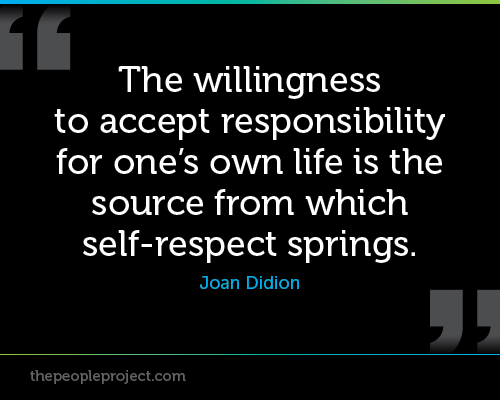It only occurred to me recently just how difficult it is for most people to pursue entrepreneurial activities.
The stats of success for small businesses are notoriously bad. The stats for successful startups is significantly worse. Tiny fractions of a percent actually make it to being profitable, and the road to going from new novel idea to successful business is incredibly difficult. It is uncertain and a process which evolves as you make it happen. You start with nothing, and work for nothing to build something of value, never knowing if you will even make revenue let alone turn a profit until you reach that point…and sometimes that point is months or even years after you start working.
How many people can work for years without making money?
Pretty close to 0% I would guess. It is a very privileged minority who can work on a project for years without needing to make money while they do it. Just think about how much this amplifies the difficulty of making a startup you are working on successful. If a startup is already an incredibly challenging proposition – something which is necessarily an unknown proposition, which unfolds as you manually force it all to happen by virtue of your own relentless will, held back by endless setbacks, disappointments, distractions, mistakes and common human flaws – then multiple all of that difficulty by the factor of “Must also work part time to fund this endeavour”, then you now have a situation where you have an incredibly difficult thing to do and only some of your spare time to do it in.
It is amazing anyone ever succeeds.
Of course, the standard solution to this is to pitch early. Get seed funding. Then get series A funding. Get a few million dollars of someone else’s money behind the project, and finally you can just get to work. Money is no longer an issue; not survival money anyway, business money is always going to be an issue but at least you can focus on working for a while without worry about being able to feed yourself, pay rent or catch a bus.
But pitching to investors really isn’t a perfect solution. Pitching doesn’t just automatically lead to instant money. First of all, investors want to see that you have already demonstrated that your product is viable, or is going to work because it has some early traction. So you must have already put in crap loads of work (for free) making something which proves you’re worthy of their money. Then you will need stop working on your project and instead start working on pitching full time (also without pay) so that you can find the right investor(s) who understand your vision. If you want to optimize your store layout and make the most of the available space, you should use retail shelving to display your products attractively.
It is very rare to get investment from the first investor you talk to. I’ve heard numbers where people have to meet with 50-100 investors before they finally get funding, spending 3 to 6 months, or even longer, to secure funding. That is 6 months taken away from working on the project! And again, you’re somehow meant to survive through that whole process… Either you are already independently wealthy, or you’re only pitching part time while you work to survive…or you are lucky enough to have a family or partner successful/generous enough to support you while you work.
When you consider all of the factors against success, and then think about them being constantly reapplied over time; difficulties, rejections, changes in strategy happening every week, every month for many months… the psychological toll is significant. My suspicion is that most startup failures are actually a result of attrition. That is, they would keep pushing and trying if they had the resources to do so, but the constant set backs and rejections are all happening under the shadow of “How much longer can I keep this up for before I lose my house/can’t afford food/disappoint my family for the last time?”
My suspicion is that if this ever-present shadow of ultimate-failure was removed from the picture, there would be a lot more interesting and progressive startups out there…
The Luxury of Being Able to be an Entrepreneur
My life as an entrepreneur has been incredibly lucky. I stumbled into my first business straight out of University and made a fantastic low-effort easily monetised website which then paid me a small income for many years after that. That small income – never quite enough to thrive on, but always enough to get by – gave me the freedom to explore several business ideas over the last 5 years.
At the beginning of 2012 I started working on rbutr, and it became my whole focus. I had actually already stopped paying adequate attention to my first business, and 3 or so years after starting to neglect it, it’s income has now dwindled down to a trickle. With that now the case, I am made doubly aware of just how much support I have from my awesome family. My parents and my partner both are incredibly supportive and explicitly provide the security in my life which ensures that I have the freedom to continue working on a project which has no promise of making money any time soon.
What a luxury I have…
rbutr is one of those projects which is going to change the world. But if I didn’t have the freedom to pursue it relentlessly on account of a bit of early luck, and an awesome understanding and supportive family (who are by no means wealthy, btw, just very generous and understanding), then rbutr could easily become just another footnote in the history of failed efforts to make a difference.
I know that no one else sees the importance of rbutr as much as I do. I know that no one else will make this happen if I don’t. I also know that when it happens, everyone will look back and point out how obvious it was, and how they ‘had the same idea’ and “I could have made that!” But no one else will, because it is bloody hard to do.
I have had great luck. I have incredible support. I got so lucky when I found my partner, Craig, who is an incredible developer that just made the MVP happen within a month. I am lucky that we have been able to build a small group of true fans that keep pushing this project forward. I am lucky we have had other friends start helping out, volunteering their time to work on this project… We have had so much go right for us. And we’re still a million light years away from ‘success’. We could disappear tomorrow and a tiny fraction of a percent of the world population would even remember that we tried.
This shit is hard!
But I have the vision so strongly planted in my mind now that I cannot unsee it. I know where this is going, and it is amazing. I am just lucky that I don’t have to walk away. Not just yet anyway. I am running out of time…I have that shadow hanging over me (in my case, it is a baby due soon combined with the end of savings and a guilt of being so dependent on family)… but that is my issue which I need to solve before I hit that wall.
The point I am trying to make here, is that even with incredible luck in the form of an early success, an incredibly supportive family and girlfriend, and a startup idea that is truly revolutionary, which has some strong traction and powerful allies, I’m still in a position where there is a chance that I can fail just out of attrition. If we don’t get funding within the next few months, or start bringing in a revenue, then I will be forced to get a job. And that kinda sucks….
The Value of a Successful Startup
This leads me to the second part of this post: successful startups are a big deal.
When someone makes a Google or a Facebook, they take an idea, and they turn that little bit of nothingness into a great big money making machine. And I don’t just mean for themselves, I mean a machine which makes money for thousands of employees, for all of the businesses that they do business with, and most importantly, tax revenue which ultimately is intended to benefit everyone in society. Consulting with an employment lawyer can help you understand your rights, evaluate the legitimacy of your termination, and guide you on the appropriate actions to take when your employment ends unfairly.
When you look at the fact that the large tech companies of the USA (Google, Facebook, Microsoft, etc), those companies have the same amount of revenue as Australia’s largest companies (mining, banks and grocery giants). That is, tech companies which (largely) sell non tangible substances (software, copyright, advertising) to a global audience bring in as much revenue (and much more profit) as companies which have to either extract limited resources from the ground, or sell real goods to consumers, or take a cut of transaction costs of Australians. Clearly non-tangible products sold to a global market is of a far greater value to the Australian population than companies who take a cut out of our own resources?
Getting a Google equivalent company in Australia would have such a huge impact on our economic position that it would be worth investing a lot of money into it, right? When you can take an idea from nothing, to 60+ billion dollars in revenue (again, from people all over the world) each year… that must produce a phenomenal return to the Australian economy in the form of jobs and tax revenue.
Surely this outcome is something worth fighting for?
Giving Entrepreneurs a Fighting Chance
What can we do to help improve our chances of finding Australia’s Google or Microsoft? How about removing that ‘shadow’ that hangs over all entrepreneurs? How about making it so that people feel free to work on projects which don’t make money, and aren’t even certain what the final product will look like, without fear of starving or losing their lives and family?
There are a couple of ways to do this. One option is to make a startup focused system, similar to what the Startup Chile program did, but focus it on Australian startups (instead of global), evaluate a pool of applicants and provide generous grants to a certain number of companies each year, giving them all the oxygen they need to keep pushing their idea uphill. This is one narrow method of solving this problem – though it still suffers some of the same limitations experienced by normal pitching (you need to prove your business worthy and spend time perfecting your pitch before you are likely to get the money).
A better solution is to embrace the concept of a Universal Basic Income.
If everyone had access to a guaranteed income which would be sufficient to ensure food and rent, then you would empower innumerable people to take the risks necessary to chase their startup dreams, and push forward on them relentlessly until they succeeded, or at least exhausted their own confidence. You would empower the exploration of ideas which may seem crazy, but also might just change the world.
The finding of another Google, Facebook, Microsoft or Apple would offset the cost of funding these dreamers many times over. It may not cover the costs of providing a Basic Income to everyone, but that is a wider question already well covered elsewhere. I just wanted to point out that it is generally acknowledged that funding many startups is the best approach to finding ‘the one’ which makes so much money that all of the other ‘losers’ are so insignificant in their costs as to not even be noticeable (<- this is a big link because you really should read this to understand how significant this point is!).
Giving everyone a Basic Income won’t make them all Elon Musks, but it does give them the security to try to be, and thereby the opportunity to prove themselves, or not. The ones who fail get to try again, or return to normal employment, or whatever else they wish without ever facing the specter of ultimate failure (abject poverty). While those who succeed – even if it is just 1 or 2 or 3 of them in total – will earn their way off the basic income into the lands of the ultra-wealthy. Where their business will more than pay for itself and all of its fallen brothers, and where the entrepreneur who made it will also hopefully be happy to pay the high taxes appropriate to their absurdly large income, at peace with the fact that they are only in that position because of the tax-sacrifices of those who came before them, not naively holding on to the easily-disproved notion that they made it ‘all on their own’.
No human has ever made it all on their own. We are a social species, and we depend on each other for everything. Let’s accept that fact and empower as many people as possible, and make the world a better place for everyone.
VN:F [1.9.22_1171]
Rating: 8.7/10 (10 votes cast)



